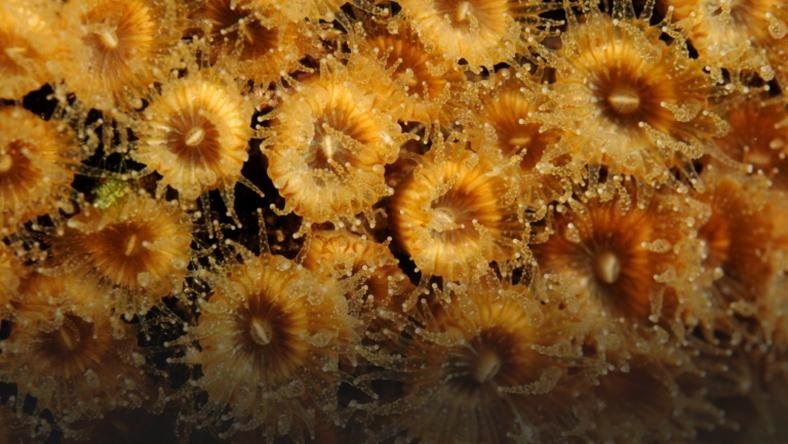A study in the Mediterranean showed that some corals, which seemed to have succumbed to the effects of global warming, managed to grow again, but for that they had to make some sacrifices.
We know that corals around the world are in danger for a number of reasons. On the one hand because of the pollution by nitrogen. Discharges of this element into the oceans deprive corals of phosphorus. This makes them more sensitive to environmental changes. Global warming and water acidification are also to blame. Whether it is one or the other, the consequence is the same: the coral dies.
Coral is indeed a complex conglomeration of microscopic algae responsible for color, and very small animals called polyps, which secrete the limestone necessary for its skeleton. At the slightest rise in temperature, the coral, stressed, then gets rid of algae. It is this separation that causes the bleaching (and thus the death) of the corals.
Resurrection
For almost twenty years, Diego K. Kersting, of the Freie University of Berlin, has been studying corals in the Mediterranean Sea, off Spain. It focuses on the populations of Cladocora caespitosa, a species of endangered coral.
Previous studies have already reported episodes of massive mortality in these reefs. Especially after the big heat wave of 2003. During this episode, about 25% of the corals had succumbed.
But recently, he realized that more than a third of them, who normally had to be dead, had gradually recovered. It was a big surprise, he says in Science Advances.
To do this, they adopted a whole new survival strategy. The polyps reduced their size, partially abandoned their initial skeleton and gradually they reconstituted a new skeleton.
(Too) slow growth
This new discovery suggests the possibility that other coral colonies around the world may also apply the same survival strategies. Further research will have to be done to try to find out.
It should also be emphasized that these corals are (re) developing very slowly – at a rate of 3 mm per year. So if you’ve had a heat wave every summer that can kill 10 to 15 percent of the reefs, it’s getting complicated, says the researcher. And everything leads to believe that these heat waves will be more and more recurring.
Corals, even if they are resilient, always need our help. The best way to do this is to put in place immediate measures to combat global warming. Recall that coral reefs are home to 25% of the planet’s marine life.




